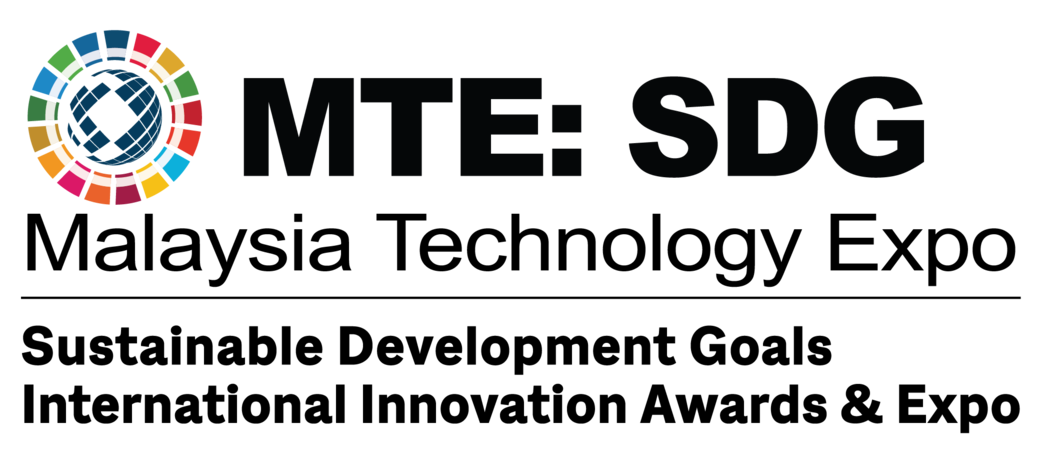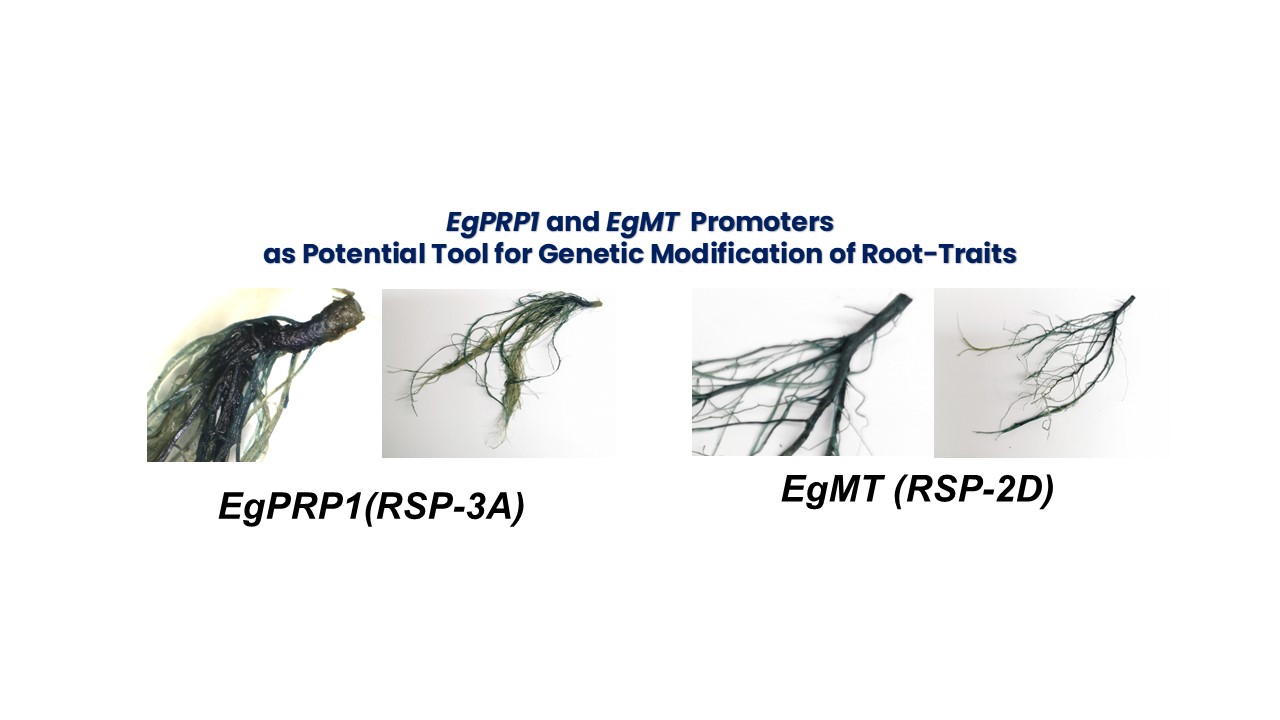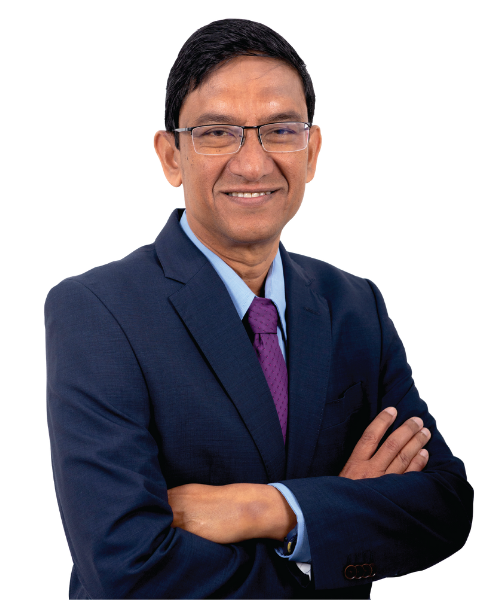EgPRP1 and EgMT Promoters as Potential Tools for Genetic Modification of Root-Traits
1. Can you briefly introduce your winning innovation and the problem it addresses?
The invention provides the promoter and 5’UTR sequences of the EgPRP1 and EgMT genes. The applications of the sequences are novel. EgPRP1 encodes for proline-rich protein and EgMT encodes for metallothionein genes. The promoters can be utilized to enhance root resistance and increase tolerance to various abiotic stresses and malnutrition in oil palm and other crops through genetic modification. This innovative approach holds promise for improving crop productivity and sustainability.
2. What were the key milestones in the development of your innovation?
The key milestones of the innovation is to discover a useful promoter from oil palm that can be used as a tool for root-trait modification. The promoter can drive the expression of transgenes in a root-specific or preferential manner.
3. How does your innovation contribute to one or more of the Sustainable Development Goals (SDGs)?
The of EgPRP1 and EgMT promoters are important to produce oil palm that resistance to pathogens, pests, malnutrition or other abiotic stresses through genetic engineering. Improving and protecting oil palm root through genetic modification leads to development of stronger and healthier root system for development of better crop, and thereby will help to maximize the oil yields and quality. This efforts are important to achieve the sustainable development goal of health & well being (SDG1-No Poverty, SDG 2-Zero Hunger, SDG3- Good Health and Well Being, SDG11-Sustainable Cities and Communities).
4. How do you plan to scale or further develop your innovation to maximize its impact?
The invention is ready to be used and will benefit molecular biotechnologists in the oil palm industry and scientists from universities and research-based companies. They can use the isolated promoters as valuable tools to drive genes of interest, producing oil palm or other crops with the beneficial agronomic traits.
5.How do you ensure your innovation remains sustainable as it grows?
The invention is biotechnology tools that holds promise for improving crop productivity and sustainability in the future.
6. How important is recognition from platforms like MTE for sustainable innovations?
Recognition from platforms such as MTE is important for innovators in sustainable solutions. It offers visibility, credibility, and collaborative networks, which are crucial for the adoption and scalability of sustainable innovations. Moreover, this recognition encourages industries to adopt more responsible and environmentally conscious practices. This recognition also accelerates the transition to a sustainable future, motivating innovators and industries to invest in technologies and practices that prioritize the current and future generation.
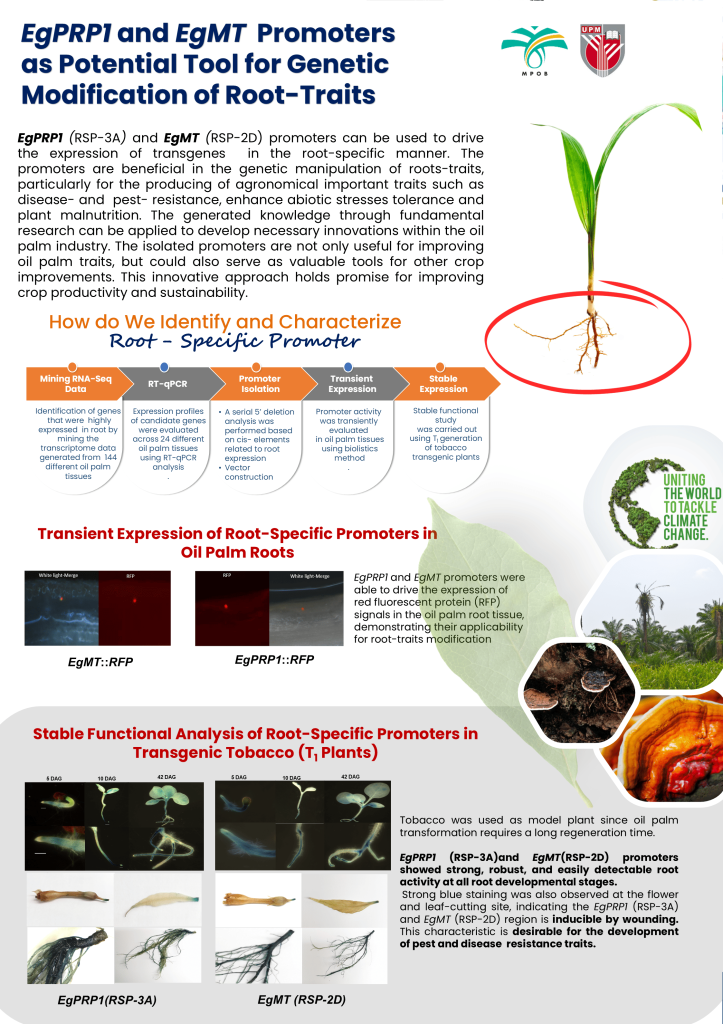
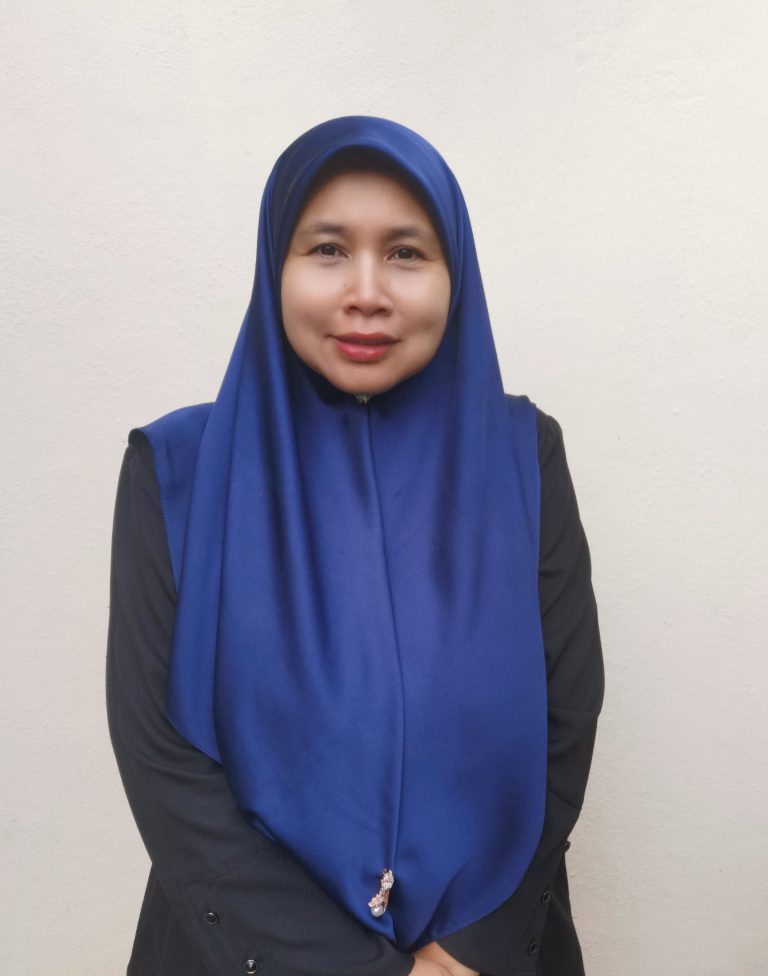
7. What role did partnerships or collaborations play in the success of your project?
The collaboration often bring together complementary skills, resources, networks, and expertise, making it easier to overcome challenges and accelerate progress.
8. What does winning this award mean to you personally and professionally?
Winning an award is a personal triumph that recognizes the dedication, passion, and vision of me and my team. Professionally, it enhances my credibility, opens new opportunities, and solidifies my role as an innovator and a leader. This achievement can boost confidence, expand networks, and fuel the drive for continued meaningful change while inspiring others. It signifies past success and lays the foundation for ongoing growth and impact on my career and life.
